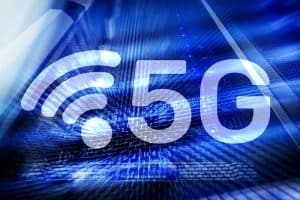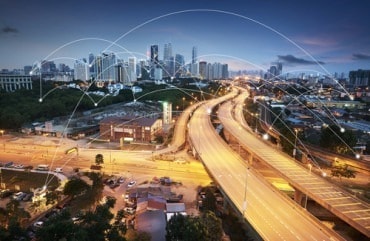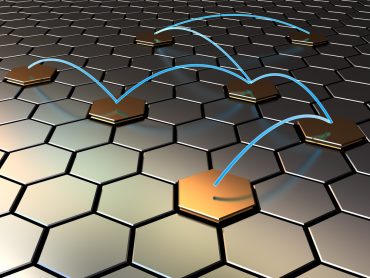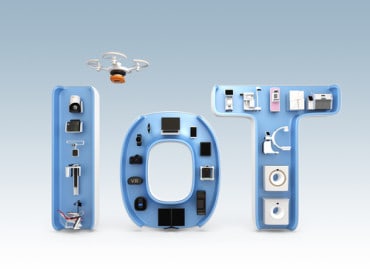
5G-integrated IIoT devices have the potential to disrupt traditional on-site job functions through remote working and virtual meetings.
5G has a vital role in accelerating Industry 4.0 adoption, through the integration of faster communication technology with IIoT devices, according to a report by market research firm Frost & Sullivan.
IIoT devices are already used for a variety of industrial operations, including maintenance, automation and cobots, remote meetings, and supply chain management. However, 5G is seen as a necessity to improve the latency and volume of data.
SEE ALSO: Microsoft Launches Azure Edge Zones For 5G Applications
Frost & Sullivan see 5G as an enabler of real-time analytics of industrial operations, augmented or virtual reality meetings, connected autonomous factories, and wireless, cooperative robotics.
“Incorporating 5G in IIoT devices will enable low latency, increase data throughput, and reduce operation time, thus leading to improved overall process productivity,” said Mogana Tashiani, Frost & Sullivan technical insights research analyst.
“Apart from enhancing the automation of industrial operations and control, 5G-enabled IIoT devices can also minimize the complexity of supply chain networks and warehouse management, helping businesses to efficiently operate in dynamic business environments.”
Not all industrial operations require 5G, in fact, many currently rely on Bluetooth and 3G. For operations like wind farms and offshore oil drilling, the cost may prohibit 4G and 5G for at least another decade.
Frost & Sullivan see banks, financial services, and insurance as key sectors for 5G-integrated IIoT growth. Automated 5G systems can perform millions of mundane, repetitive tasks every day while reducing human error in the process.
5G may also enable self-driving cars by moving some of the computation outside the vehicle. The car would also be able to interact with a connected traffic system, providing real-time data on accidents and road conditions.
The current coronavirus pandemic has brought many emerging technologies, previously stuck in legislative gridlock, to prominence. Tashiana believes 5G will be key for business sustainability: “The low latency will aid in managing the high traffic to e-commerce by improving network accessibility at a faster pace, accelerating online purchases and order placements.
“Furthermore, 5G-integrated IIoT devices have the potential to disrupt traditional on-site job functions through remote working and virtual meetings. COVID-19 has led to a massive shift to remote working to maintain business operations on par with on-site job operations,” he added.







